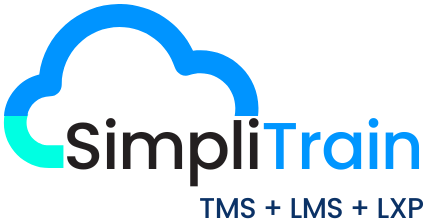What is Emotional Intelligence? Understanding Its Importance in the Workplace
Emotional intelligence, or EQ, is increasingly recognized as a critical skill in today’s workplace, influencing everything from individual productivity to organizational success. Defined as the ability to understand, manage, and effectively use emotions, EQ encompasses self-awareness, empathy, social skills, and self-regulation. According to TalentSmart, EQ is responsible for 58% of professional success, yet only 36% of people possess a high level of this skill, as highlighted by emotional intelligence expert Travis Bradberry. This article unpacks the core of emotional intelligence, its key benefits, and why companies are prioritizing EQ development.
Why Emotional Intelligence Matters
In a competitive work environment, technical skills alone are not enough. Emotional intelligence equips individuals with the ability to navigate complex workplace dynamics, manage stress, and build relationships. Research from Harvard Business Review found that employees with high EQs consistently outperform those with lower EQs, contributing to a more cohesive and effective workforce.
The Five Components of Emotional Intelligence
According to psychologist Daniel Goleman, EQ is composed of five key elements:
- Self-Awareness: Recognizing one’s emotions and how they affect thoughts and behavior.
- Self-Regulation: The ability to control emotions and adapt to changing circumstances.
- Motivation: A passion for work that extends beyond money or status.
- Empathy: Understanding the emotional needs of others, crucial for collaboration.
- Social Skills: Building networks, managing relationships, and resolving conflicts.
Each of these components plays a role in creating a productive, supportive, and adaptable work environment.
The Business Case for Emotional Intelligence
Emotional intelligence has a direct impact on a company’s bottom line. A study by Korn Ferry found that companies led by emotionally intelligent leaders experienced a 34% higher profit margin compared to those led by lower EQ counterparts. High-EQ employees are not only better at handling stress and resolving conflicts but are also more likely to inspire others, increasing morale and productivity across teams.
Furthermore, emotionally intelligent employees contribute to better employee retention. Korn Ferry data indicates that managers with high EQ are able to retain 70% of their employees for over five years, demonstrating how essential EQ is to long-term team stability.
How Emotional Intelligence Enhances Workplace Performance
Emotional intelligence fosters a positive work culture where individuals feel valued, understood, and motivated. High-EQ employees excel in several key areas:
- Effective Communication: High-EQ employees are often strong communicators, understanding nonverbal cues and adjusting their communication style to meet the needs of their audience.
- Conflict Resolution: Emotionally intelligent employees are skilled at managing conflict, which is crucial in preventing disruptions and fostering a collaborative atmosphere.
- Adaptability: In fast-changing business environments, employees with high EQ can navigate challenges and remain focused, adaptable, and solution-oriented.
A TalentSmart study shows that 90% of top performers have high EQ, emphasizing that emotional intelligence is a cornerstone of professional excellence.
Building Emotional Intelligence in the Workplace
Given its advantages, companies are increasingly investing in EQ development through training programs, workshops, and coaching sessions. Here are a few strategies organizations can use to nurture emotional intelligence:
- EQ Training Programs: Offering workshops on stress management, empathy, and effective communication can help employees build emotional awareness.
- Mentorship and Feedback Loops: Regular feedback helps employees develop self-awareness and improve interpersonal skills.
- Team-Building Activities: Encouraging employees to build stronger personal connections fosters empathy and collaboration.
Emotional Intelligence as a Future Skill
As the workplace evolves, EQ is set to become even more critical. According to the World Economic Forum, emotional intelligence is one of the top 10 skills needed for the future of work. Companies that prioritize EQ are more likely to foster a resilient, adaptable workforce equipped to handle the demands of a dynamic business landscape.
Conclusion
Emotional intelligence is more than a personal trait—it’s a powerful tool for business success. From improving individual performance to driving organizational growth, EQ influences multiple aspects of the workplace. As companies continue to recognize its value, fostering emotional intelligence will not only be a differentiator but a necessity.










